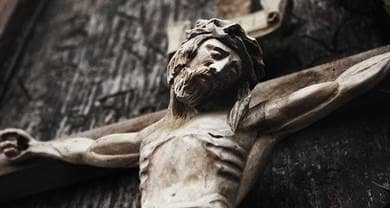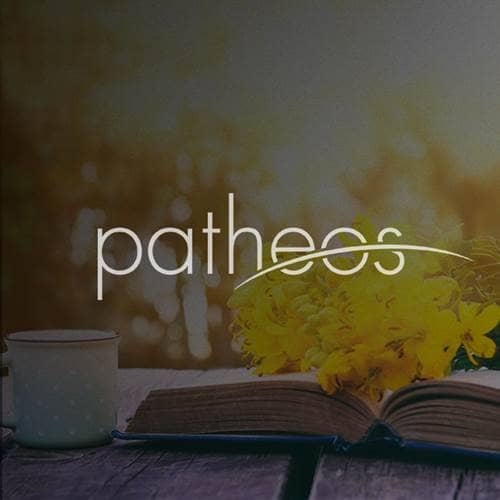- Trending:
- Pope Leo Xiv
- |
- Israel
- |
- Trump
- |
- Social Justice
- |
- Peace
- |
- Love

RELIGION LIBRARY
Roman Catholicism
Sacred Time
Catholics have a dual understanding of sacred time: the time of origins, when sacred events took place, and the time of renewal, when those sacred events are re-enacted. For Catholics, the most sacred events in history are the life, death, and resurrection of Jesus and the founding of the Church immediately thereafter. Despite their deep veneration of these most important of sacred times, Catholics differ from some Christians in that they do not look to the time of Jesus and the apostles as the high point of history, with everything that comes after it following a downward slope. Catholics believe that God continues to be present in the world through the medium of the Church, and that history continues to be sacralized by God's presence. God in the Person of the Holy Spirit guides the Church through both triumph and tragedy, using even the human failings of the Church's members to bring good and the call of God into the world. No matter how dark the time in which Catholics find themselves, they have an optimistic view of the flow of history and of the end toward which humanity and the world are moving.
For this reason, Catholics do not experience time as something to be escaped or shunned. Time is the vehicle through which God gathers all people, but time is a limited commodity. Catholics believe human life to be a great blessing, and something that only occurs once within the history of a soul; it is the arena in which humans may choose to accept or reject God's freely given gift of grace, moving themselves toward salvation or damnation. Time is therefore a great and wonderful gift; even when humans experience the world as travail and tears, it remains the one path toward union with God, which is the goal of all human life.
Even though time is sacralized because of God's presence in the world through the medium of the Church, humans do not tend to be aware of every moment as sacred. When Catholics re-enact the sacred events of Jesus' life, they renew their spirits by moving consciously into sacred time. First and foremost among these moments of renewal is the experience of God's presence in the Mass (Latin missa, "sent"), particularly through the Eucharist (Greek for "thanksgiving"). Catholics believe that in the mystery of the Mass, the bread and wine of the Eucharist are transformed into the body and blood of Jesus. Participating in the Eucharist gives the Catholic a direct physical connection to the sacred, a tangible communion with the divine. The reception of the Eucharist is the most sacred point in the life of the Catholic, made more extraordinary by its ability to be repeated. Mass and the celebration of the Eucharist are offered every day, but most Catholics attend Mass only on Sundays.
The Eucharist, along with Baptism, Confirmation, Reconciliation, Marriage, Holy Orders, and the Anointing of the Sick, is one of the sacraments of the Catholic Church. The celebration of each one creates a space of sacred time in the midst of everyday life; these are the moments when Catholics experience their ongoing connection to the divine most directly. The sacraments create sacred "mile markers" in human life, each pointing the way to what lies beyond this world.
Another way that Catholics mark sacred time is through the liturgical seasons of the year. Through the course of each year, Catholics re-enact a particular series of events from the life of Jesus, creating a sacred arc from the events prior to and surrounding his birth to his death and resurrection. The liturgical year includes:
· Advent, a season of waiting and hope that re-enacts the Annunciation to Jesus' mother, Mary, that she would conceive and give birth to the Son of God;
· Christmas, a roughly two-week celebration of Jesus' birth and the incarnation of God into human form;
· Lent, a six-week period devoted to repentance and fasting in preparation for Easter; and
· the Paschal season surrounding Easter, marking Jesus' death, resurrection, and ascension into heaven, which are the holiest days of the Christian year.
These are the major seasons, but in, through, and among these are a whole host of other holy days and feasts. Prominent among them are Pentecost, which recalls the descent of the Holy Spirit onto the apostles after Jesus' ascension; the Assumption of the Blessed Virgin Mary, commemorating Mary's bodily assumption into heaven; All Saints' Day, dedicated to all those who have attained heaven, immediately followed by All Soul's Day, which remembers the faithful who have died but have not yet reached heaven. There are a multitude of other feasts and holy days; in fact, every single day of the year is devoted to a particular event in sacred history or remembrance of particular saints in the Catholic pantheon.
Study Questions:
1. Describe the Catholic understandings of sacred time. How are they directly related to salvation?
2. When have the most sacred events in Catholic history taken place? Why are they not considered the “high point” of history?
3. Why could the Eucharist be called a timeless activity?
4. How does the liturgical calendar transform time? What are the major events within it?










